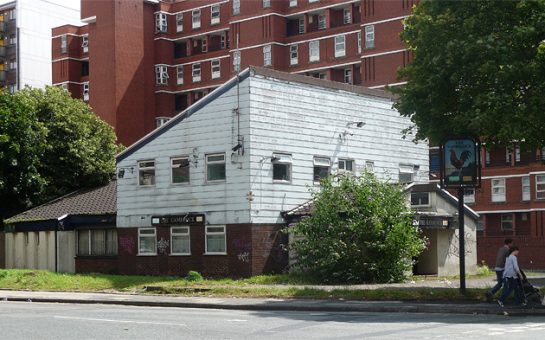Manchester students are almost twice more likely than other tenants to lose some or all of their security deposits, according to figures from the Deposit Protection Service.
The DPS are warning students who are renting accommodation that they must act now to ensure that their deposits will be returned at the end of their tenancies.
As part of tenancy agreements, landlords and letting agents take a deposit from tenants to guard against loss and damage.
By law they must protect the money through an authorised tenancy deposit protection scheme such as The DPS.
The DPS’s records have shown however that fewer than one in three students (27.54%) receive 90% or more of their deposit at the end of their tenancies, compared to almost six in ten tenants nationally (57.06%).
Trustee at the University of Manchester Students’ Union, Harriet Pugh, believes that more protection is needed from ‘exploitative landlords’.
She told MM: “The Students Union recognises the issue of non-returned deposits as a common and serious one.
“With cuts to resources and a lack of legislation and enforcement to protect tenants from exploitative landlords, the Council are not able or willing to hold bad landlords to account.
“We need to raise this resource from somewhere, which is why the students union are working on a community campaign with local residents to ask the council for a licensing scheme.
“[A licensing scheme] where landlords must pay a fee to let, the money from which will go to provide resource for the council to properly monitor the sector on behalf of students, tenants and local residents.”
For students, the most common cause of a deduction in tenancy deposits is the need to clean the property after it has been vacated (32%), followed by repairs (27%), redecoration (20%) and the replacement of lost or damaged items (19%).
Julian Foster, managing director at the DPS, argues that students should take measures to ensure that their deposits are fully protected.
She said: “Students must be aware of their responsibilities as tenants and act accordingly throughout their tenancy – or risk losing money when they move out.
“As well as asking their landlord to confirm where their deposit is protected, taking simple steps such as checking household inventories and communicating regularly with landlords can help ensure that deposits are returned in full.
“Deposit protection means both landlords and tenants can have peace of mind that the money is safe – and that there is a free, impartial adjudication service if the tenancy ends in a dispute.”
The DPS have produced a video aimed at students that highlights the risks if they don’t take preventative steps to reduce the risk of losing their deposits.
Watch the video here:
They have also issued 12 ‘top tips’ that students should take into consideration when thinking about increasing their chances of retaining their deposits:
1. First and foremost, make sure your landlord protects your deposit with an authorised deposit protection scheme.
2. When you move in, agree an inventory with other tenants and return it to your landlord.
3. If the landlord is unknown to you, make sure you check their name against your university or student union’s list of approved landlords.
4. Remember every tenancy agreement can be different: make sure you read yours and understand your rights and obligations.
5. Record all communication with your landlord in writing, particularly any agreements you make, follow up phone calls with what was agreed by email.
6. Keep copies of any documents, receipts and email correspondence relating to your tenancy.
7. Report any defects with the property promptly and in writing, including the cause of the problem when you can.
8. If you ever take photos of problems in the property, make sure they are date stamped.
9. Remember your obligations as tenants are likely to be what are known legally as “joint and several”: if one individual tenant does not accept personal responsibility when something goes wrong, such as a breakage, then it becomes the joint responsibility of all the tenants.
10. Remember most tenancy agreements stipulate that tenants are liable for damage to communal areas as well as within your own room.
11. Remember liability generally extends right until the end of the tenancy: if you move out before other tenants, you could remain jointly responsible for the property.
12. Attend the checkout inspection at the end of your tenancy and take your own photographs if necessary.
Image courtesy of Oto Yamamoto, with thanks.



